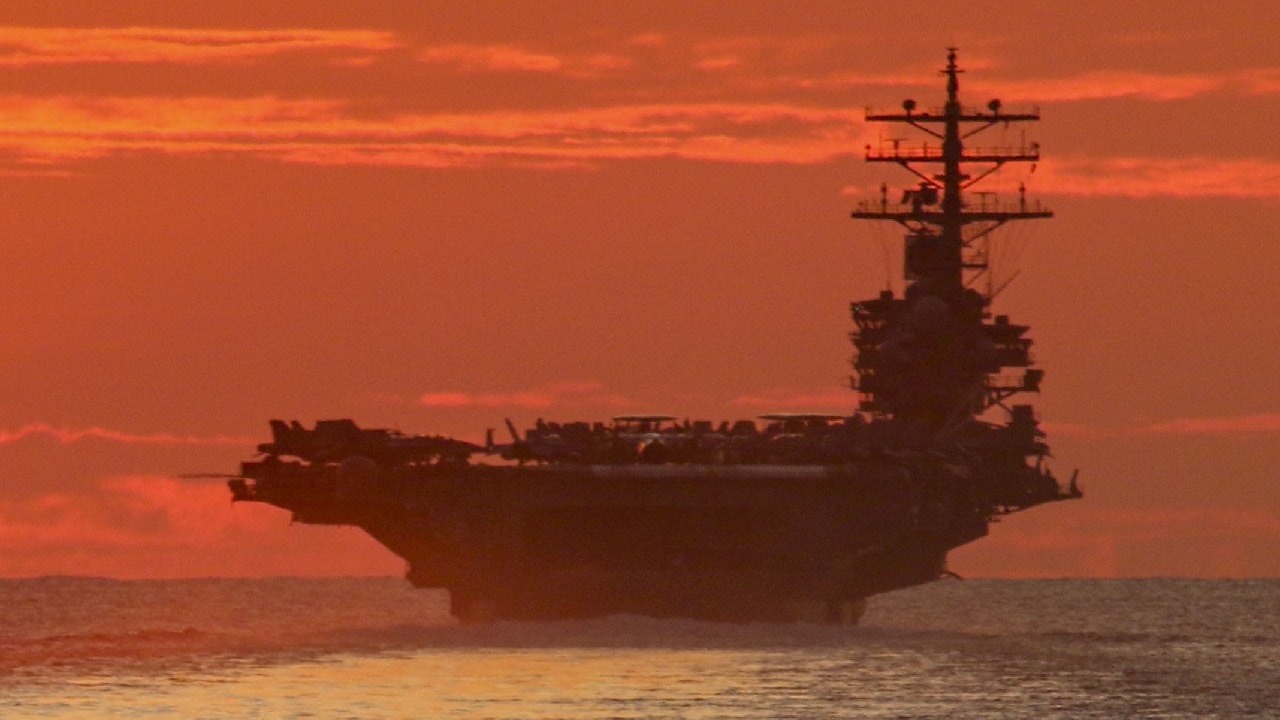The USS Ronald Reagan nuclear-powered aircraft carrier is scheduled to make port in Danang, Vietnam, this week – right in China’s backyard. The visit will mark just the third time a U.S. aircraft carrier has visited Vietnam since the withdrawal of American forces from that country in 1975.
The Ronald Reagan will arrive on June 25 and stay until June 30. “The scheduled arrival of the Ronald Reagan comes as Washington is seeking to upgrade relations with Vietnam and against a back-drop of increased tension in which Hanoi has had frequent disputes with its larger neighbor over maritime border boundaries in the South China Sea,” Al Jazeera reported.
Aircraft Carrier USS Ronald Reagan in the News
On June 18, rumors circulated on Chinese social media that Chinese air force H-6K bombers had flown at low altitude, approached the Ronald Reagan undetected, and locked onto the vessel with weapons radar. No evidence to support the rumors was offered, but their circulation underscores the fraught relations between China and the U.S., especially with respect to the South China Sea.
While the H-6K incident was not confirmed, the U.S. did confirm an incident last month in which a Chinese fighter performed an “unnecessarily aggressive” move when the jet “flew directly in front of the nose of [an] RC-135, forcing the U.S. aircraft to fly through its wake turbulence.”
The incidents come as pressure mounts in the Indo-Pacific. China has been increasingly assertive, making territorial claims throughout the region and complicating relations with neighbors like Vietnam, Taiwan, and Japan who are all seeking reassurances from the U.S.
“China claims almost the entirety of the South China Sea, including the exclusive economic ones of Vietnam and other countries in the region,” Al Jazeera reported. “U.S. aircraft carriers that frequently cross the energy-rich sea are often shadowed by Chinese vessels.”
U.S. Supporting Allies in the Region
The USS Ronald Reagan’s port call in Danang is meant to demonstrate solidarity with Vietnam, no doubt as a symbolic thwart to Chinese claims in the region. Similarly, this week, President Joe Biden is hosting Indian Prime Minister Narendra Modi in Washington. Modi’s visit is controversial given his government’s spotty record on human rights, but India is crucial to countering China in the Asia-Pacific. Biden appears willing to look the other way on the promotion of “democratic norms” in order to strengthen relations with a partner so vital to security strategy.
The U.S. has also appeared to get closer lately to Taiwan, the sovereignty of which China denies outright. Traditionally, the U.S. has maintained strategic ambiguity with respect to Taiwan, meaning Washington stays silent on its willingness to defend the country. But Nancy Pelosi’s visit to Taiwan last year, paired with U.S. financial support of Ukraine, suggests the U.S. would be willing to intervene if Taiwan were attacked.
The U.S. is playing a dangerous game and will need to do so with skill and tact. Washington needs to deputize allies in the Indo-Pacific to serve as the primary check against Chinese adventurism. For its own part, the U.S. needs to take measures to avoid direct conflict with China.
Harrison Kass is the Senior Editor opinion writer at 19FortyFive. An attorney, pilot, guitarist, and minor pro hockey player, Harrison joined the US Air Force as a Pilot Trainee but was medically discharged. Harrison holds a BA from Lake Forest College, a JD from the University of Oregon, and an MA from New York University. Harrison listens to Dokken.
From 19FortyFive
Footage Shows World War I Guns Being Used in Ukraine
‘Vacuum Bombs Destroyed’: Ukraine Footage Shows Putin’s Thermobaric Rockets Destroyed
BOOM! Ukraine Video Shows Precision Strike on Russian Air-Defense System

